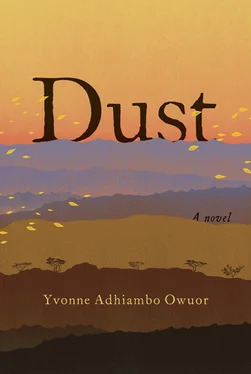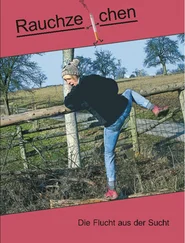“Kormamaddo.”
Her eyes half lidded, Akai spat the name: “Bakir, you know what a goat looks like?” A laugh.
“Maybe,” he said, enchanted.
She said he could start by helping Galgalu herd the livestock. He could set up his tent and share food, and in exchange for his camel, work, food, and some shillings, he could have six lambs when he left.
Akai was baiting him, expecting him to refuse.
“Yes,” he answered.
She would give him a hard time.
He would take it.
A game.
He would win.
“Galgalu!” Akai had called, examining Ali Dida Hada from head to toe. Galgalu loped into sight. She turned toward her courtyard, saying over her shoulder, “Take this wanderer. Give him water for his filthy face. Work him hard. He looks like an idle one. The camel is ours.”
Ali Dida Hada had suppressed a laugh.
Galgalu’s chin jutted forward. He was chewing on the end of a leleshwa twig, making creaking sounds, the sloshing of saliva. He chomped on, and noted the flaring of Ali Dida Hada’s nostrils. “You! Let’s go,” Galgalu said. “You stink,” he added, safe from Akai’s hearing.
Almost a week later, Nyipir Oganda appeared with thirty-five cows. Ali Dida Hada had approached the temporary thorn-fringed boma where the new cows were being examined for disease and bad habits before being rebranded. Nyipir sized him up. Turned his back on him, said nothing. They worked in silence.
“Nyipir!” Akai interrupted the stillness.
Both men turned, and Nyipir heard the herdsman gasp.
Nyipir ambled toward Akai. He lifted her off her feet.
She laughed a low laugh.
Nyipir asked, “Akai, now, where did you find that one?”
“He was lost.”
“He has a name?”
“Bakir, he says.”
“The animals like him. He sings to them. How’s my wife?”
“Happy.”
More laughter.
Ali Dida Hada had concentrated on examining the mouths of the cows, his hands shaking. Stolen livestock . Long-horned and milky white. Studied the triangular brands on the cattle’s necks. Where are they from? He strained to listen to the lovers’ murmurs. He despised the envy that had possessed him. His body slumped against the rump of a cow.
This place.
Wuoth Ogik.
Forces converged here. People left stories at springs. These were passed on from one season to another.
He heard nothing about Hugh Bolton.
In fact, he had forgotten to ask.
Later, he would meet Akai’s children. A brash boy, Ebewesit Odidi, and Arabel Ajany, a scrawny girl who jumped at her shadow and followed her brother around. They were more peculiar than his children. They lived in worlds only they saw.
At first they darted past him, only to watch him from behind barriers: fences, walls, boulders, and trees. One sunset, he was whistling a camel water song when the boy stopped him.
“What’re you singing?”
“A water song.”
“Why?”
“Water likes song.”
“Water can’t hear,” he scoffed.
“Tell the camels. They come only to water that sings.”
The boy pondered the matter. He nodded. “Teach me,” he demanded.
Ruffian! “Why?”
“I want to know.”
“My songs. My secret.”
“I-want-to-know!”
“Mine.”
“You work for us.”
“Work, not sing.”
“If I say please ?”
“That’s better.”
So Ali Dida Hada had taught Odidi Oganda the first verse of a Tigrinya water song. Then, one day, Arabel Ajany sneaked over, centimeter by centimeter, until she was leaning against her brother’s back, listening to their singing. The next day, as the child was waiting for her father, Ali Dida Hada overheard her sing the water song he had taught her brother. Her voice made him listen, because if he shut his eyes, he could hear his mother.
Galgalu would ask him twice a day, “When are you leaving?”
Ali Dida Hada answered, “How’s my departure your business?”
He had returned to his hut one night after a long day.
He found Akai waiting for him on the steps outside.
He sat down close next to her.
Their skins touched.
They did not speak.
After maybe an hour, she left.
Another evening, he broke open doum nuts and gave them to Akai.
Her face turned to his, tear-streaked.
She came to his hut, sat on the steps again.
He stood behind her and told her a story:
“The lion and the fox went to live together. They put their flocks together and went on a journey until they got to a place that they liked and where they built their hut.…”
“Sing, herdsman. Sing, Bakir,” she said, “Sing something cold.”
He chanted, “ Urgessa Waaqa — nagaya nu bulci …” Fragrance of God — give us peace.
Another night, she took both his hands in hers. She slipped her hands between his, warming them. Later, he turned her hands over and raised them to his mouth.
She asked, “How do you know what to sing?”
He answered in Tigrinya.
“ Gudate takeme beleselasa zefenoch … Wounds are embroidered with soft songs, spiced prayer, so tell me, what dares barricade a heart from the oil of song?”
Whispers. She leaned into them, into him.
He turned his nose into her skin and inhaled her.
He rubbed his chin against her face.
She did not flinch.
Later.
Akai, her fingers pointing upward, sketched for Ali Dida Hada the path of the stars, speaking of them with the names she had given to them. She described the camels she loved and their personalities. She did not speak of Nyipir, nor did she mention her children. She told Ali Dida Hada, Go away, go to your woman . He replied, I’ve no one . She asked, Why? He said, The one I had didn’t want me . She asked, Are you cruel? He answered, Would I know if I were?
Ali Dida Hada had stayed at Wuoth Ogik for more than six months when Nyipir suddenly left the ranch, “to meet with traders,” he said.
Akai found Ali Dida Hada standing outside the courtyard gate at sunrise. “You’re going?”
“A short while,” he said, avoiding her eyes.
She stared at the ground. “What’s your real name?”
He told her the one he used: Ali Dida Hada.
Akai moved closer and laid her head against his.
“Your sheep?”
“Keep them.”
She bit hard into his chin.
He moaned.
She skipped away. She looked at him over her shoulder. “You’ll come back.”
Akai laughed at him.
Echoes of that laugh touch Ali Dida Hada’s Nairobi present. Where is she? Ali Dida Hada stirs. How to forget? He used to know how. For example, he no longer thought of his mother’s face. He did not even speak his original name.
FOG IN THE CITY. A TEMPORARY PEACE AGREEMENT HASHED out. Kofi Annan’s name is enshrined in matatus plying the land. Since dawn, Ajany has been shading in the outline of Wuoth Ogik on art paper in red, blue, black, and green ballpoint ink. Little details. A cairn under which she writes the name Engineer Moses Ebewesit Odidi Oganda, 1964–2007 . Four shapes to represent Nyipir, Akai-ma, Galgalu, and herself. Koroli springs. She outlines Ali Dida Hada. Water Singer , she writes. The backdrop is Odidi’s face.
Ajany stuffs the map, three of Odidi’s pictures, and a wad of money into a large, plain brown envelope. Odidi’s Baby , she scrawls. She sits on her bed, knees drawn up, staring at the package.
Long after dusk, when the frantic traffic sounds outside have eased, she steps out her door, walks down the short corridor to where the stairs begin.
Читать дальше











